John Feldman’s Regenerating Life Travel Journal 1
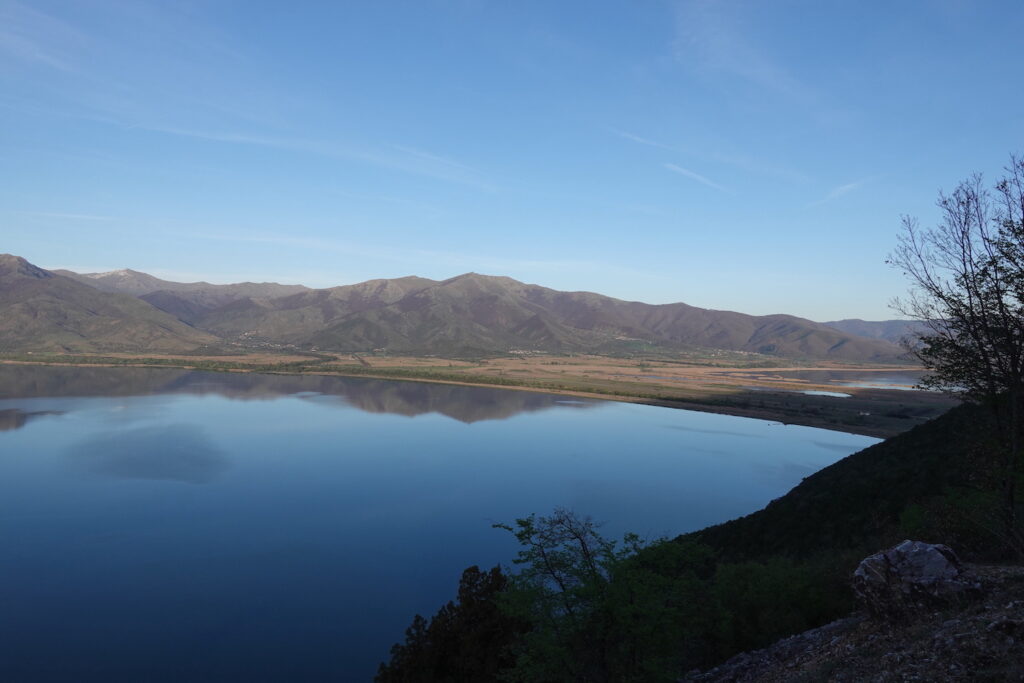
My travels with Regenerating Life presented hope and real possibilities for workable solutions to the climate crisis. Here’s what happened in Greece.
This story begins on Saturday, April 6, 2024 as Sheila and I watched out the car windows on the two hour drive from the Thessaloniki airport to Kastoria in the northern mountains of Greece. Kastoria means “place of the beaver.” It was once the home of a thriving fur market. The beavers are now long gone. And this is one of the reasons why the country has become so dry and hot. The water from the rains is running down the mountains and there are no beaver dams and old trees to make the meandering system of ponds and lakes that keep the water on the land.
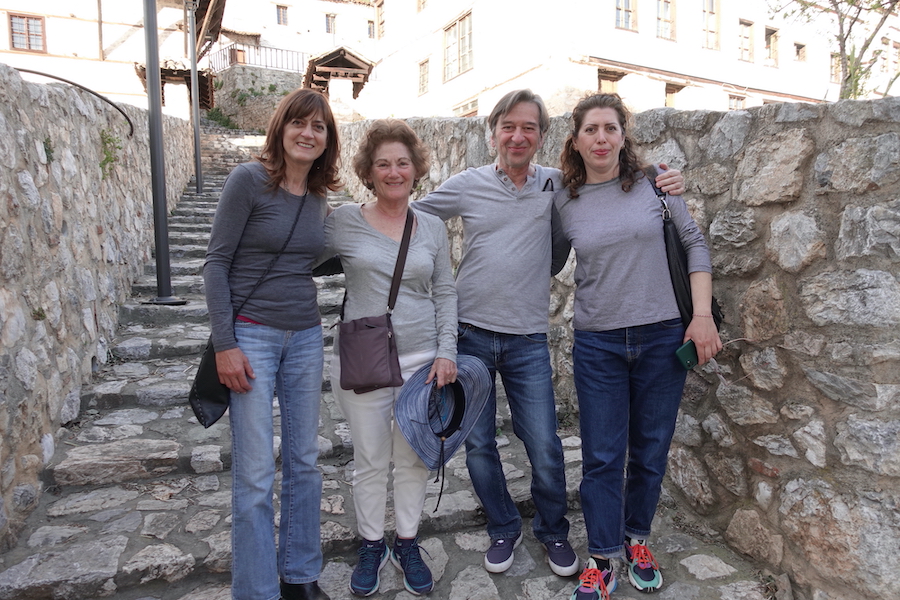
The next night, we had a screening of Regenerating Life at the Aquarium of Kastoria, organized by our host Nikos Giannakis, a biologist and environmental consultant, and Maria Tseleka. It was well attended and the discussion afterwards often came back to the conflict between renewable energy and environmental stewardship.
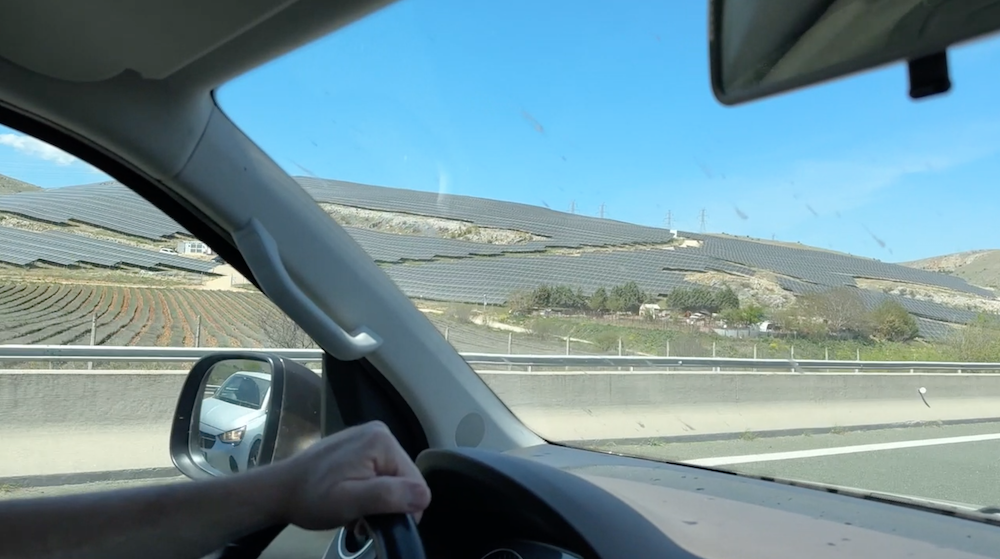
Later in the trip, we drove past mountainsides covered with solar panels and wind turbines. The devastation to the landscape was shocking. Nikos is outraged. Greece is being used by the EU as an abundant source of sunny land for such projects. It’s complicated because the EU certainly needs to develop a robust renewable energy infrastructure, but as I often point out in post-screening discussions, we need to separate the “energy” crisis from the “climate” crisis. While they are interlinked, they are not the same. And this misunderstanding is at the heart of what is called “carbon tunnel-vision,” and a host of inappropriate, costly, and damaging “climate smart” solutions. It’s sad. Renewable energy is a way to address the need for new sources of electricity, but it is not a solution to the climate crisis, and it often makes things worse. It’s a complex balancing act.
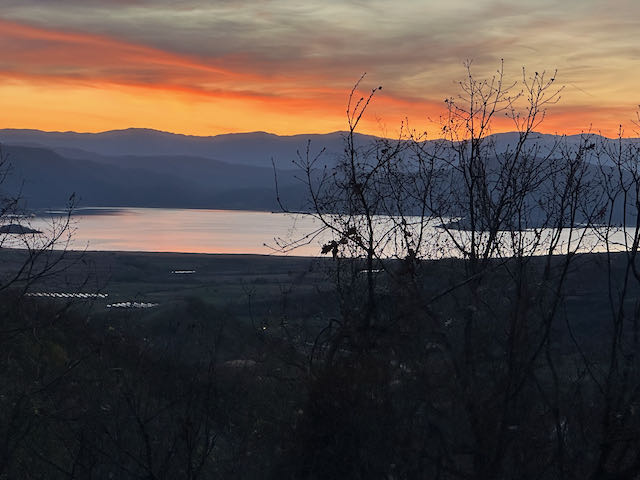
Sheila and I spent three days with Nikos and his wife, Angela Georganta, in their beautifully restored house (restored by Angela, an award winning architect) in Northern Greece that has a view of the mountains of North Macedonia and Albania. At the intersection of the three countries are two lakes: Great Prespa Lake and Little Prespa Lake. We walked through the Prespa National Park and saw the rare Dalmation Pelican and many other species of water fowl including the Great Crested Grebe. Nikos showed us the evidence that the lake is getting lower, quickly, diverse habitats are being lost, and we discussed how retaining more water on the land, on the mountain slopes and in the soils, could increase the water levels in the lake over time.

We had our second screening in Greece in Thessaloniki at a school next to a new food forest project. Here the discussion focused around the possibilities of communities creating gardens and, in this case, even food forests in urban areas.
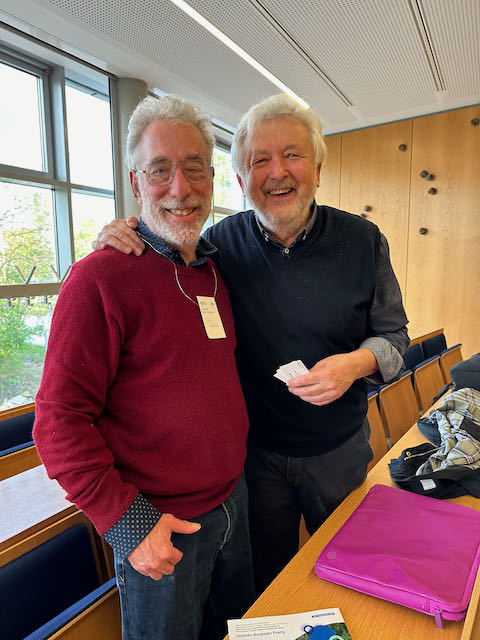
Three days later, I found myself at a fascinating conference, Embracing Nature’s Complexity, at the Institute for Advanced Study of the Technical University of Munich. It was about how to communicate the value of water-and-climate regulating systems. There I joined an international gathering of scientists, scholars, journalists, and industrialists organized by Anastassia Makarieva and the famed Brazilian scientist Antonio Nobre, who are some of the great minds behind the biotic pump theory.
At the conference, I was honored to meet Michal Kravčik the lead author of The New Water Paradigm that was a primary resource for Regenerating Life. Because Nikos and I had been talking so much about the environmental devastation in northern Greece, I asked Michal if he would consult with Nikos. Nikos is currently completing a proposal for the protection and management of the Lake Prespa region, which is a designated NATURA 2000 site.
I’m thrilled to report, that last week, back in New York, I had two exciting Zoom conversations with Nikos, Michal Kravčik and his colleague Dusan Travniček. The amazing news is that we have initiated a collaboration to develop a plan to revitalize the small water cycle in the Prespa National Park, which I will document with a short film.
And this gets me back to those beavers. Michal and his team at Water Holisitic have developed methods to retain water on the land, by – in many ways – mimicking what beavers used to do. Using trees they recreate a system of “leaky” dams. This builds soil, biodiversity, and the small water cycle – leading to more rain, more growth, and more water. This is an effective and workable way to combat climate change. They have been successful in the Košice region of Slovakia and would apply similar techniques to the Prespa area.
Having poured through papers and reports over the last week, I am convinced that Michal Kravčik and his team are developing sane, safe, quick, and achievable approaches to solving the climate crisis.
May 16, 2024
